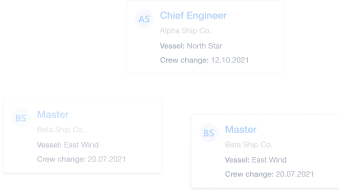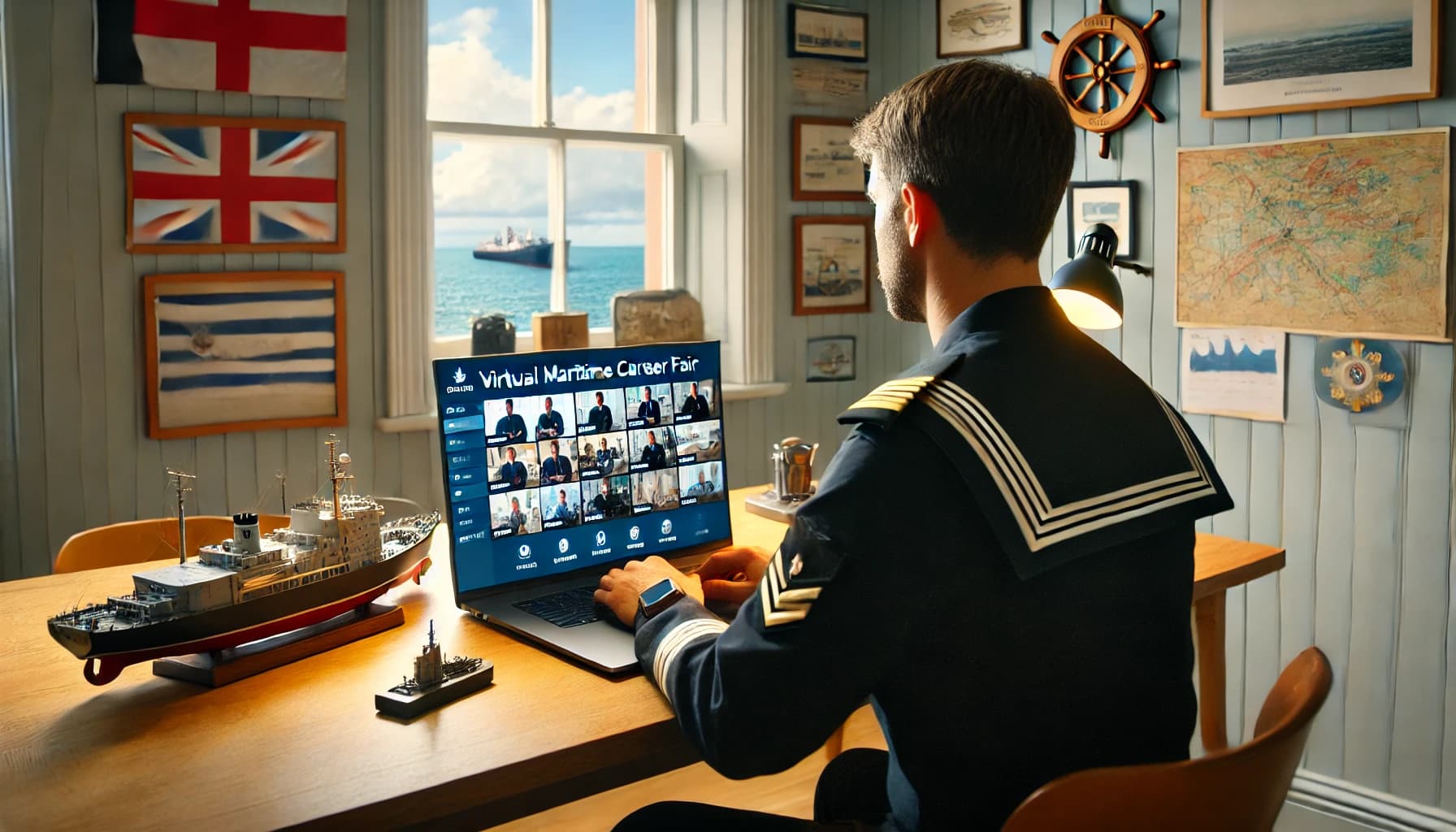If you’re thinking about a career in the maritime industry, are interested in jobs at sea and are starting to look for entry level cargo ship jobs you’re probably wondering what skills you’re going to need.
And while all of the traditional seafarer skills such as being able to think on the spot, problem solving, the ability to work in a team, punctuality and physical strength are still crucial, these days you’re going to need some tech skills too.
When you look at maritime jobs with a traditional mindset, the idea that you might be needed to list technology skills on your seafarer resume might seem a little strange.
But like many, if not all industries, maritime and jobs at sea are no longer immune to digitization and an increasing dependence on technology.
I want to work in a job at sea: Must I be technical?
This all really depends on which one of the seafarer ranks you are planning on qualifying for. But for example, let’s consider just some of the technologies that you might need to know how to use.
From multi-fuel propulsion systems to integrated bridge systems and from different types of ECDIS to radar and GPS, there are a number of complex tools and devices onboard modern vessels that you may encounter during your career in jobs at sea.
And all of these different types of equipment require a very specific knowledge when it comes to, not just their operation, but also the need to maintain and repair them, if needed, too.
If you can add those skills to your seafarer resume you’re going to set yourself apart from all the other seamen looking for maritime jobs.

In fact you could even take it a step further and learn coding or programming!
What programming languages could seafarers learn?
If you are interested in learning how to code and adding some up-to-date skills to your resume for a seafarer, which programming languages are the most useful onboard a ship?
Having a solid understanding of JavaScript and Python would set you apart when it comes to recruiting for entry level cargo ship jobs.
But you might be wondering if you should spend your time and effort (and possibly money too) on learning non-traditional skills for jobs at sea.
After all, maritime jobs are demanding enough and if you already have an interest in subjects such as coding or other updated skills that relate to modern seafarer jobs and maritime technology, that is all well and good.
But should you really be diverting your attention from the job in hand to be learning new, often complex, marine tech?
To be perfectly honest, some industry insiders think you should be. There is always going to be a place for good seamanship, problem solving skills, punctuality and the ability to deal with a life at sea.
But the fact is, that more and more technology will be used to help run operations onboard cargo ships.
Not only that but you also need to know how to deal with cyber security when you’re at sea to ensure that your personal data is kept safe when you’re logging into your email and social media accounts, and apps for communication.

Read more: How to Stay Safe Online in Jobs at Sea
You will also be expected to be able to use increasingly advanced technology and training will play a big part in that.
That might not be an issue if you’re just starting out in your career at sea and are looking for entry level cargo ship jobs - after all you are of a generation that has grown up with technology.
You might have mixed feelings about being trained to use the latest maritime technology if you’re an older seafarer, however, and that’s understandable.
If so, just try to keep in mind that technology is being implemented to make your life easier - even if it doesn’t feel like that at first! Once you get to grips with new systems, processes will be more streamlined, and it will make keeping records and creating reports simpler.
Accept that technology is part of everyday life
If you’ve been working in jobs at sea for a long time, you probably know full well how much life onboard has changed. Both on a personal level and in the way that you work and the tools and systems you use.
You might have embraced these new methods and welcomed them with open arms. Or you may be pining for the past when there weren’t so many systems to get to grips with! Indeed, life has changed dramatically over the last couple of decades - on land as well as at sea.
Our personal lives would be very different now without the internet, Facebook, Skype, Twitter/X, WhatsApp, Telegram, WeChat and all the other tech we use to communicate and stay in touch.

Now, if you have WiFi aboard your vessel, your time at sea is hopefully less isolated as you have more opportunity to stay in touch with your loved ones at home.
So technology doesn’t have to be a scary or unknown quantity. In fact knowing your way around a computer and a smartphone will make it easier for you to find jobs at sea! For example, by using the Martide mobile app for seafarer jobs.
Read more: Find jobs at Sea with the Martide Mobile App
Other skills that are useful in seafarer jobs
We’ve looked briefly at the traditional seafaring skills that will still be just as relevant in jobs at sea in the future, as they were fifty, sixty, even two hundred years ago.
And we’ve covered why you will need to be comfortable using maritime technology if you’re looking for entry level ship jobs. But are there any other skills that would come in handy in this changing era of shipping?
Being able to work with a team ashore
You know that teamwork is crucial onboard your vessel but in the maritime jobs of tomorrow, remote teams will have a bigger part to play in the running of the ship.
Obviously how closely you work with a remote team, or if you will work with them at all, depends very much on your seafarer rank.
But as ship and shore systems become more integrated, masters and officers will need to accept that teams on shore will be advising them on certain issues.

Being able to maintain focus
One criticism of the reliance on technology in seafarer jobs is that seamen can feel bombarded with too much tech.
If you’re a navigator, when you have multiple displays, screens, lights, alarms and graphs or charts all screaming for your attention, the danger is that it’s easy to be distracted and therefore miss something crucial that you should have spotted through keeping a good old fashioned lookout!
Being adaptable
As we’ve seen, technology is changing our lives and the way we work. Like it or not, it is changing jobs at sea and life onboard vessels too.
On a personal level, increasingly seafarers are no longer gathering to chat, hang out or play cards after a shift or watch, but are immersing themselves in the personal technology they’ve brought onboard with them.
To be successful and enjoy your career at sea, whether you’re searching for entry level cargo ship jobs, or are an experienced seaman (particularly if you’re an experienced seaman), the willingness to adapt to change is vital.
Technologies onboard will change, and so too will seafarer training and maritime jobs. The question is, will you?
To summarize
Jobs at sea are steadily becoming more technical. That means that shipowners and ship managers will be looking to fill many of their vacant seafarer jobs with highly skilled and tech-savvy crew.
If you’re looking for entry level ship jobs, this might make the thought of a career at sea even more exciting.

If you’re already a licensed seafarer, unless you’re thinking of exploring options for shore based maritime jobs or jobs in seaports, you might have to accept the fact that there will be an increase in on the job learning and you might need to be prepared to step outside of your comfort zone and develop new skills.
Read more: Tips You Should Read Before Switching to a Shore Based Maritime Job
On the other hand, as a seafarer it’s likely that you relish a challenge and are going to grab the bull by the horns! In which case...
How Martide can help you find seafarer jobs
At Martide we make life easier for seafarers who are looking for jobs at sea and we're always recruiting for entry level ship jobs, chief engineer jobs, oiler jobs, ship’s cook jobs and more. No coding necessary - just good old fashioned seafaring qualifications!
Check out our latest seafarer jobs here!
You should also download our free mobile app from Google Play or the Apple Store to browse all of our open vacancies from your smartphone or tablet now.

It’s the quickest and easiest way to find jobs at sea and to stay in touch with employers, no matter where in the world you are.
This post was first published on 13th February 2019 and updated on 1st May 2020

Eve Church
Eve is Martide's content writer, publishing regular posts on everything from our maritime recruitment and crew planning software to life at sea. Eve has been writing professionally for more than two decades, crafting everything from SEO-focused blog posts and website landing pages to magazine articles and corporate whitepapers.
UK




